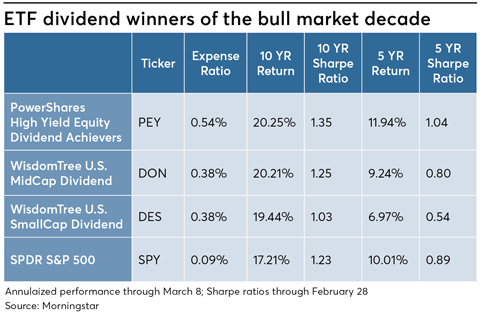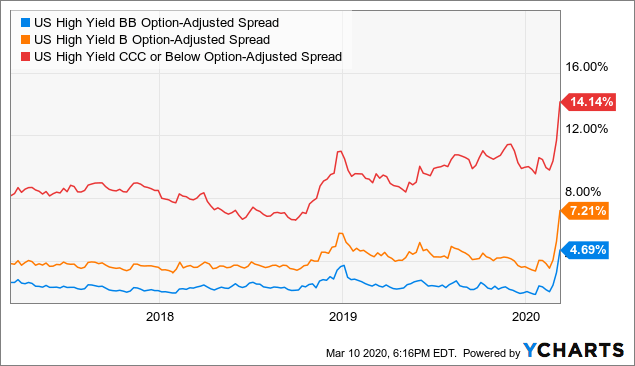
Forex investing is risky. However, if you are able to follow a good strategy, and have the capital available, you could make a decent living. Before you start trading Forex, though, you'll want to know exactly how much money you'll need to start trading. Your trading style and your personal circumstances will determine the amount of money you need. You should also consider the possibility of losing your capital, and how much you can afford.
As a general rule of thumb, you'll want to invest a minimum of 1% of your account balance into each trade. For leveraged products you may need to invest more, such as 5% to 15% of the account. A good way to make sure you don't lose your money is to set a stop-loss order. A broker will place a stop-loss orders to indicate that you wish to close your trade at a specific price. If you have an account with a broker that requires a minimum amount of money to be deposited before you can place a stop-loss order, you may want to think about getting another broker.

It is best to calculate how much money your risk tolerance is before you start forex trading. This will allow you to trade at the right level of risk, and make your trades more confident. But even the best traders may have bad days. So don't expect that you will make millions every day. To make sure that you're ready for loss, it is a good idea to have some extra cash.
If you're looking to start forex trading, the best way to do it is to find a forex broker that offers a free demo account. This can help you learn about the different currencies, as well as different forex trading strategies. A demo account is a free way to test your trading strategies before you put any real cash at risk. Using a demo account allows you to practice various forex trading strategies without risking any of your own cash.
How much money do you need to start Forex Trading? This will depend on your trading style, how your life is going, and what your goals are. If you're looking to trade for a living, you'll want to start out with a minimum of $500, but if you're looking to take a stab at currency trading as a side business, you'll need at least $3000. While it may not seem like much, if you do it well, you could start to generate a modest amount of income.

Trading classes are also a good idea. Many brokers offer classes, and a well-taught class can speed your learning curve. A great teacher will be able guide you to the best strategies for your trading style.
FAQ
What is a "bond"?
A bond agreement between two people where money is transferred to purchase goods or services. Also known as a contract, it is also called a bond agreement.
A bond is usually written on a piece of paper and signed by both sides. This document includes details like the date, amount due, interest rate, and so on.
The bond is used for risks such as the possibility of a business failing or someone breaking a promise.
Many bonds are used in conjunction with mortgages and other types of loans. This means that the borrower will need to repay the loan along with any interest.
Bonds can also be used to raise funds for large projects such as building roads, bridges and hospitals.
A bond becomes due when it matures. When a bond matures, the owner receives the principal amount and any interest.
Lenders can lose their money if they fail to pay back a bond.
Can you trade on the stock-market?
The answer is everyone. But not all people are equal in this world. Some people have better skills or knowledge than others. They should be rewarded.
However, there are other factors that can determine whether or not a person succeeds in trading stocks. You won't be able make any decisions based upon financial reports if you don’t know how to read them.
You need to know how to read these reports. You need to know what each number means. You should be able understand and interpret each number correctly.
If you do this, you'll be able to spot trends and patterns in the data. This will help you decide when to buy and sell shares.
This could lead to you becoming wealthy if you're fortunate enough.
How does the stock markets work?
You are purchasing ownership rights to a portion of the company when you purchase a share of stock. A shareholder has certain rights. He/she may vote on major policies or resolutions. He/she has the right to demand payment for any damages done by the company. He/she may also sue for breach of contract.
A company cannot issue any more shares than its total assets, minus liabilities. This is called capital adequacy.
A company with a high capital sufficiency ratio is considered to be safe. Low ratios make it risky to invest in.
What is the main difference between the stock exchange and the securities marketplace?
The entire list of companies listed on a stock exchange to trade shares is known as the securities market. This includes stocks as well options, futures and other financial instruments. Stock markets are generally divided into two main categories: primary market and secondary. Stock markets are divided into two categories: primary and secondary. Secondary stock exchanges are smaller ones where investors can trade privately. These include OTC Bulletin Board Over-the-Counter (Pink Sheets) and Nasdaq ShortCap Market.
Stock markets are important because they provide a place where people can buy and sell shares of businesses. The value of shares depends on their price. A company issues new shares to the public whenever it goes public. Investors who purchase these newly issued shares receive dividends. Dividends are payments made by a corporation to shareholders.
In addition to providing a place for buyers and sellers, stock markets also serve as a tool for corporate governance. Boards of directors are elected by shareholders to oversee management. The boards ensure that managers are following ethical business practices. If a board fails to perform this function, the government may step in and replace the board.
How can I select a reliable investment company?
It is important to find one that charges low fees, provides high-quality administration, and offers a diverse portfolio. The type of security in your account will determine the fees. Some companies don't charge fees to hold cash, while others charge a flat annual fee regardless of the amount that you deposit. Others charge a percentage of your total assets.
It is also important to find out their performance history. You might not choose a company with a poor track-record. You want to avoid companies with low net asset value (NAV) and those with very volatile NAVs.
You should also check their investment philosophy. A company that invests in high-return investments should be open to taking risks. If they're unwilling to take these risks, they might not be capable of meeting your expectations.
How are Share Prices Set?
Investors are seeking a return of their investment and set the share prices. They want to make a profit from the company. They buy shares at a fixed price. The investor will make more profit if shares go up. The investor loses money if the share prices fall.
The main aim of an investor is to make as much money as possible. This is why they invest in companies. This allows them to make a lot of money.
Why is a stock security?
Security is an investment instrument whose worth depends on another company. It may be issued either by a corporation (e.g. stocks), government (e.g. bond), or any other entity (e.g. preferred stock). The issuer can promise to pay dividends or repay creditors any debts owed, and to return capital to investors in the event that the underlying assets lose value.
How Does Inflation Affect the Stock Market?
Inflation has an impact on the stock market as investors have to spend less dollars each year in order to purchase goods and services. As prices rise, stocks fall. You should buy shares whenever they are cheap.
Statistics
- "If all of your money's in one stock, you could potentially lose 50% of it overnight," Moore says. (nerdwallet.com)
- Even if you find talent for trading stocks, allocating more than 10% of your portfolio to an individual stock can expose your savings to too much volatility. (nerdwallet.com)
- For instance, an individual or entity that owns 100,000 shares of a company with one million outstanding shares would have a 10% ownership stake. (investopedia.com)
- Individuals with very limited financial experience are either terrified by horror stories of average investors losing 50% of their portfolio value or are beguiled by "hot tips" that bear the promise of huge rewards but seldom pay off. (investopedia.com)
External Links
How To
How to Invest Online in Stock Market
Stock investing is one way to make money on the stock market. There are many ways you can invest in stock markets, including mutual funds and exchange-traded fonds (ETFs), as well as hedge funds. The best investment strategy depends on your risk tolerance, financial goals, personal investment style, and overall knowledge of the markets.
To be successful in the stock markets, you have to first understand how it works. This includes understanding the different investment options, their risks and the potential benefits. Once you are clear about what you want, you can then start to determine which type of investment is best for you.
There are three types of investments available: equity, fixed-income, and options. Equity is ownership shares in companies. Fixed income can be defined as debt instruments such bonds and Treasury bills. Alternatives include commodities, currencies and real estate. Venture capital is also available. Each category comes with its own pros, and you have to choose which one you like best.
Two broad strategies are available once you've decided on the type of investment that you want. The first is "buy and keep." This means that you buy a certain amount of security and then you hold it for a set period of time. The second strategy is "diversification". Diversification means buying securities from different classes. If you buy 10% each of Apple, Microsoft and General Motors, then you can diversify into three different industries. Multiplying your investments will give you more exposure to many sectors of the economy. This helps you to avoid losses in one industry because you still have something in another.
Another important aspect of investing is risk management. You can control the volatility of your portfolio through risk management. If you were only willing to take on a 1% risk, you could choose a low-risk fund. You could, however, choose a higher risk fund if you are willing to take on a 5% chance.
Knowing how to manage your finances is the final step in becoming an investor. Managing your money means having a plan for where you want to go financially in the future. Your short-term, medium-term, and long-term goals should all be covered in a good plan. You must stick to your plan. Do not let market fluctuations distract you. Stick to your plan and watch your wealth grow.